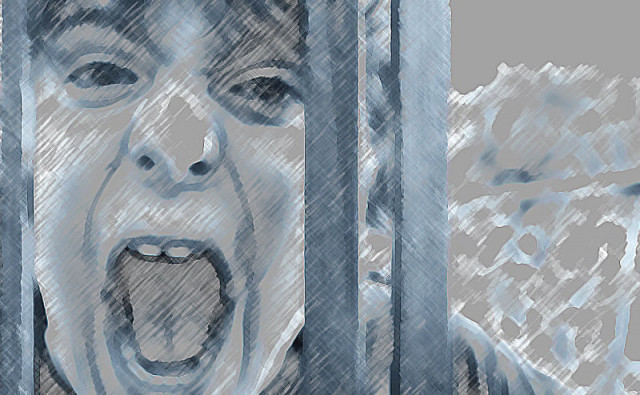Abusive practice: Corporal punishment leaves more than just physical scars on students
Seminar organised by SPARC stresses on the need to enact necessary legislation.

Speakers stressed the need to abandon the practice and find viable alternatives. SPARC Programme Manager Imran Takkar said the problem of corporal punishment could be easily solved through a mechanism of guidance and counseling in schools. PHOTO: FILE
Speakers at a workshop on corporal punishment on Saturday claimed the practice leaves deep psychological and physical scars on students and is one of the main factors contributing to dropping out of school.
The workshop on elimination of corporal punishment was organised by the Society for the Protection of the Rights of the Child (SPARC) and held at Provincial Institute for Teacher Education (PITE). It was attended by around 100 teachers and officials from the Elementary and Secondary Education Department.
Speakers stressed the need to abandon the practice and find viable alternatives. SPARC Programme Manager Imran Takkar said the problem of corporal punishment could be easily solved through a mechanism of guidance and counseling in schools.
“Through community participation, the issue could be eliminated from schools. Proper counseling of students could be a valuable alternative, but unfortunately teachers have been relying mostly on corporal punishment as a means of guiding students,” he said.
SPARC’s Country Manager Imtiaz Khan claimed students often run away from school out of fear of corporal punishment and this contributes to the increasing dropout rates. “Students should be taught in a friendly manner. This not only increases their interest in studies, but also has positive influences on their personalities,” he added.
Imtiaz said SPARC is always there to support the elementary education department to eliminate the abusive practice. “SPARC has trained almost 5,000 male and female primary school teachers in five districts – Nowshera, Mardan, Swabi, Peshawar and Charsadda – in the last two years,” he claimed. The organisation continues to campaign and raise awareness on the negative impacts of corporal punishment across the province, he added.
PITE Deputy Director Arif Ali Khan appreciated the efforts made by SPARC by holding workshops and training teachers. He said teachers and parents lack proper coordination and stressed the need for better mutual cooperation between teachers.
Elementary and Secondary Education Assistant Director Hameedullah said corporal punishment monitoring and redresses mechanism has been introduced and a hotline has been established to report complaints. The department then follows and takes necessary action, he added.
While the mechanism helps, Hameedullah emphasized legislation for prohibiting corporal punishment must be enacted for more effective results.
Published in The Express Tribune, September 1st, 2013.













COMMENTS
Comments are moderated and generally will be posted if they are on-topic and not abusive.
For more information, please see our Comments FAQ